Personal Safety
15 Dangerous Creatures and How to Avoid Them

What are the Most Dangerous Animals on Earth? The Answer May Surprise You
GOOD Magazine has put together a video of the top 15 creatures that are lethal to humans. Can you guess which creature is the most deadly?
(These are estimated numbers presented by GOOD Magazine)
What is the World’s Deadliest Animal?
Let’s go even further… Let’s discuss safety precautions you can take to avoid being attacked or affected by these creatures:
Which Animals Kill the Most People?
1. Sharks: 10 deaths a year
2. Wolves: 10 deaths a year
3. Lions: 100 deaths a year
4. Elephants: 100 deaths a year
5. Hippos: 500 deaths a year
6. Crocodiles: 1000 deaths a year
7. Tapeworms: 2000 deaths a year
8. Tsetse Fly: 9000 deaths a year
9. Assassin Bug: 12,000 deaths a year
10. Dog: 40,000 deaths a year (via rabies)
11. Venomous Snakes: 50,000 deaths a year
12. Ascaris Roundworm: 50,000 deaths a year
13. Freshwater Snail: 110,000 deaths a year (via Schistosomiasis)
14. Humans: 475,000 deaths a year
15. Mosquitoes: 725,000 deaths a year
Sharks – 10 Deaths per Year

Sharks can be dangerous, and anyone who ventures into their territory needs to have a healthy respect for these fish. If you’re going to enter waters inhabited by sharks, it’s a good idea to know how to fight off an attack, but it’s even more important to know how to minimize the risk of attack. (info via)
Ocean Safety in general is very important. Thousands of people each year take to the ocean waters as it continues to be a favorite pastime. This article, How To Prevent a Shark Attack, is a must read for any ocean lover.
Wolves – 10 Deaths Per Year

Wolf attacks are the rarest of all large predatory attacks. Respect for wild wolves and practicing wolf safety will help them resume their vital role as a part of the natural ecosystems of our planet. However, if you do happen to come upon wild wolves, take precautions and use common sense. Stay calm and do not run. Stand tall to make yourself look larger. Slowly back away while maintaining eye contact. Keep any dogs you may have with you on a leash. Always hike and camp in a group — never alone! (info via)
Lions – 100 Deaths Per Year

Safaris through wildlife reserves are a thrill ride. Now, the popularity of walking safaris is growing, and these are more thrilling than ever before. Along with the thrill comes a heightened amount of danger. While most lions flee from people, even while you’re on foot, an attack is always a possibility. Knowing how to react ahead of time could save your life. (info via)
If you are planning a Safari trip, How to Survive a Lion Attack is a must read.
Elephants – 100 Deaths Per Year

If, by a stroke of ill-fortune, you are unlucky enough to come face-to-face with an angry elephant, your very survival is at stake. While there are no guarantees, knowing what to do when an elephant charges before your travel in elephant country or work with elephants is a sensible precaution. The aim is to stay alive! (info via)
Check out How to Survive a Charging Elephant for safety measures to prevent a deadly situation.
Hippos – 500 Deaths Per Year
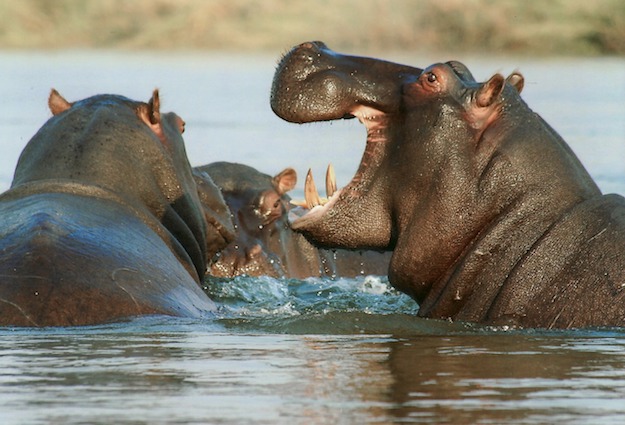
Walking through the African bush in the dry season could bring you face to face with a hippopotamus. John Coppinger explains how to avoid a potentially dangerous and even fatal encounter with this extremely territorial animal.
Crocodiles – 1000 Deaths Per Year
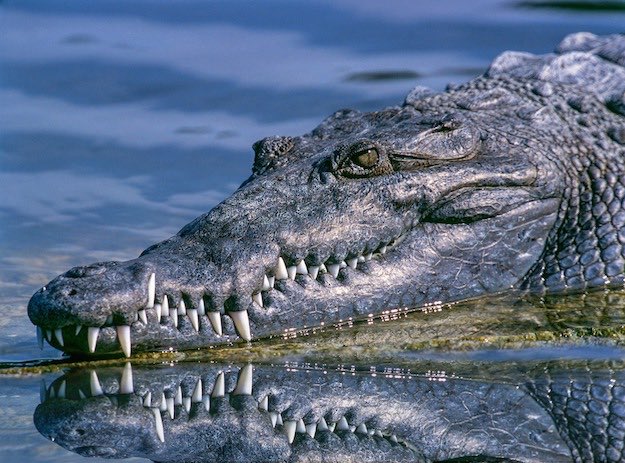
The simplest rule for staying safe in crocodile habitat is to never enter or approach the water. Of course this is not always realistic, but you must assume that any body of water in crocodilian habitat could potentially hold a crocodile capable of injuring or killing you, regardless of whether the attack is provoked or not. (info via)
To read further for more safety tips and precautions check out this article by CrocBITE.
Tapeworms – 2000 Deaths Per Year
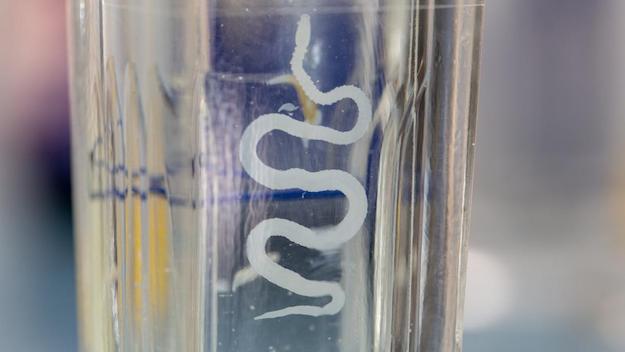
A tapeworm is a parasitic flatworm, the adult of which lives in the intestine of humans and other vertebrates. It has a long ribbon like body with many segments that can become independent, and a small head bearing hooks and suckers.
To prevent tapeworm infection:
- Wash your hands with soap and water before eating or handling food and after using the toilet.
- When traveling in areas where tapeworm is more common, wash and cook all fruits and vegetables with safe water before eating.
- Eliminate livestock exposure to tapeworm eggs by properly disposing of animal and human feces.
- Thoroughly cook meat at temperatures of at least 125 F (52 C) to kill tapeworm eggs or larvae.
- Freeze meat for at least 12 hours and fish for at least 24 hours to kill tapeworm eggs and larvae.
- Avoid eating raw or undercooked pork, beef and fish.
- Promptly treat dogs infected with tapeworm.
(info via)
Tsetse Fly – 9000 Deaths Per Year (African trypanosomiasis, also known as Sleeping Sickness)
There is no vaccine or drug for prophylaxis against African trypanosomiasis (sleeping sickness.) Preventive measures are aimed at minimizing contact with tsetse flies. Local residents are usually aware of the areas that are heavily infested and they can provide advice about places to avoid. (info via)
For safety precautions against African trypanosomiasis from the Tsetse fly, read this article presented by cdc.gov.
Assassin Bug – 12,000 Deaths Per Year (Chagas Disease)
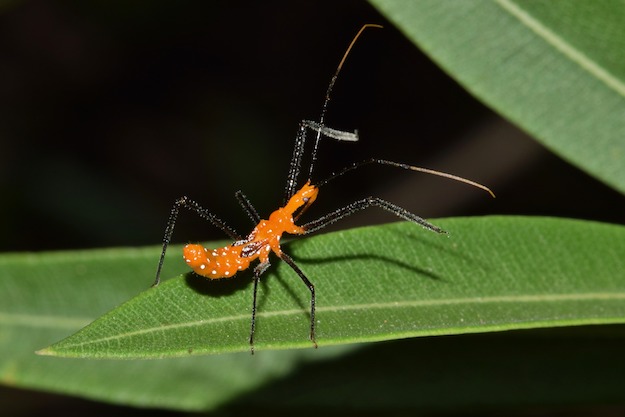
Where are triatomine bugs (assassin bugs) typically found?
Triatomine bugs (also called reduviid bugs, “kissing” bugs, assassin bugs, cone-nosed bugs, and blood suckers) can live indoors, in cracks and holes of substandard housing, or in a variety of outdoor settings including:
- Beneath porches
- Between rocky structures
- Under cement
- In rock, wood, brush piles, or beneath bark
- In rodent nests or animal burrows
- In outdoor dog houses or kennels
- In chicken coops or houses
They are typically found in the southern United States, Mexico, Central America, and South America (as far south as southern Argentina). The map below details triatomine occurrence by U.S. state. (info via)
For further information on safety precautions read this article presented by cdc.gov.
Dog – 40,000 Deaths Per Year (Rabies)

Imagine that you’re enjoying a run in the park or a bike ride through the neighborhood when, suddenly, an unfamiliar dog runs up to you, snarls, and primes himself to lunge. What should you do? There’s a right way and a wrong way to handle a dog attack. Keep yourself safe by staying calm and taking some measures to diffuse the situation. (info via)
Check out this article for further safety measures to prevent a dog attack.
Venomous Snakes – 50,000 Deaths Per Year
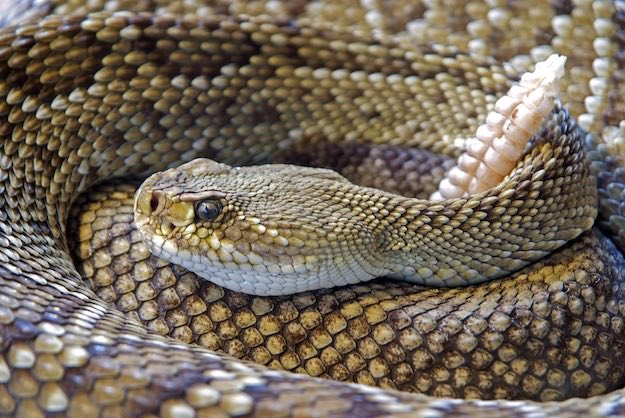
While the behavior of snakes is obviously not 100% predictable, you can minimize your chances of being bitten by taking several basic precautions. If you want to avoid being at the receiving end of a pair of venomous fangs, follow these simple guidelines while out romping in the wilderness:
- Avoid tall grass.
- Remember that snakes can climb.
- Check before you stick your hand into a crevasse.
- Zombie snake attack.
- Don’t sleep in the enemy’s lair.
(Read more safety tips here)
Ascaris Roundworm – 50,000 Deaths Per Year (Intestinal Parasites)
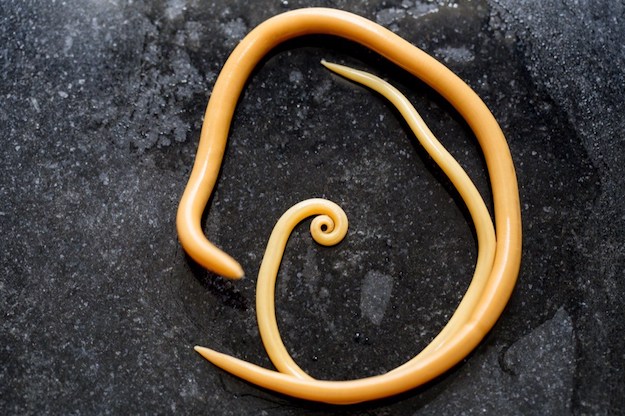
Ascaris is a genus of parasitic nematode worms known as the “small intestinal roundworms”, which is a type of helminth. One species, Ascaris lumbricoides, affects humans and causes the disease ascariasis. Another species, Ascaris suum, typically infects pigs.
Prevention:
- Practice good hygiene. Before handling food, always wash your hands with soap and water. Wash fresh fruits and vegetables thoroughly.
- Use care when traveling. Use only bottled water, and avoid raw vegetables unless you can peel and wash them yourself. As a rule, eat only foods that are cooked and hot.
(info via)
Freshwater Snail – 110,000 Deaths Per Year (Schistosomiasis)
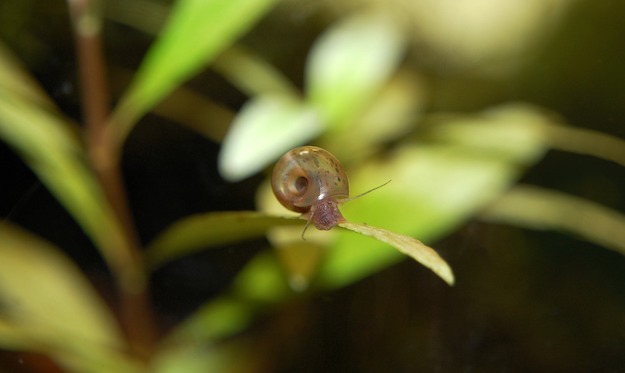
How can I get schistosomiasis?
Infection occurs when your skin comes in contact with contaminated freshwater in which certain types of snails that carry schistosomes are living.
Freshwater becomes contaminated by Schistosoma eggs when infected people urinate or defecate in the water. The eggs hatch, and if certain types of freshwater snails are present in the water, the parasites develop and multiply inside the snails. The parasite leaves the snail and enters the water where it can survive for about 48 hours. Schistosoma parasites can penetrate the skin of persons who are wading, swimming, bathing, or washing in contaminated water. Within several weeks, parasite mature into adult worms, residing in the blood vessels of the body where the females produce eggs. Some of the eggs travel to the bladder or intestine and are passed into the urine or stool. (info via)
For further information and safety precautions read this article presented by cdc.gov.
Humans – 475,000 Deaths Per Year (Murder)

Let’s face it…humans can be dangerous! We live in a crazy world!
Check out our articles here at Survival Life on personal safety.
Surviving an Active Shooter or Terrorist Attack
6 Ways to Stay Safe in Potentially Threatening Crowds
Mosquitoes – 725,000 Deaths Per Year
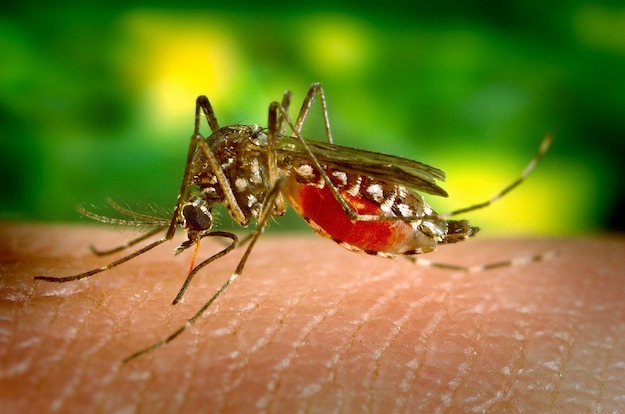
And finally, the biggest lethal threat to humans? – THE MOSQUITO!!
Mosquitoes are known to carry many infectious diseases from several different classes of microorganisms, including viruses and parasites. Mosquito-borne illnesses include malaria, West Nile virus, elephantiasis, dengue fever, yellow fever, and the newly discovered Zika virus.
It is so important to protect yourself from mosquitoes! Check out our article Protect Yourself Against Mosquitoes for more information on how you can protect yourself.
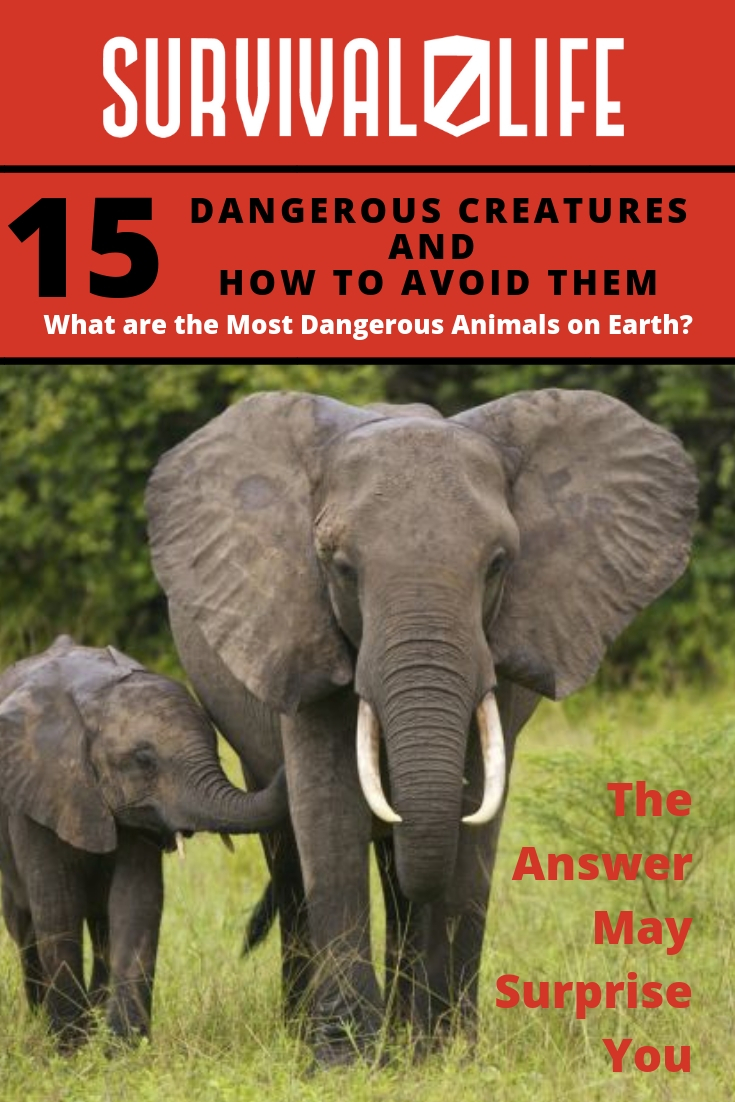
Also, check out this great article on DIY Mosquito Trap Ideas from our friends at DIYReady.com.
Want to learn more about staying safe when dealing with animals? Check out these related articles on our site:
11 Tips to Avoid Animal Attacks
Survival Skills | Guide to Venomous Spiders
-

 Do It Yourself7 months ago
Do It Yourself7 months agoParacord Projects | 36 Cool Paracord Ideas For Your Paracord Survival Projects
-

 Do It Yourself9 months ago
Do It Yourself9 months agoHow To Make Paracord Survival Bracelets | DIY Survival Prepping
-

 Do It Yourself9 months ago
Do It Yourself9 months ago21 Home Remedies For Toothache Pain Relief
-

 Do It Yourself10 months ago
Do It Yourself10 months agoSurvival DIY: How To Melt Aluminum Cans For Casting
-

 Exports8 months ago
Exports8 months agoAre Switchblades Legal? Knife Laws By State



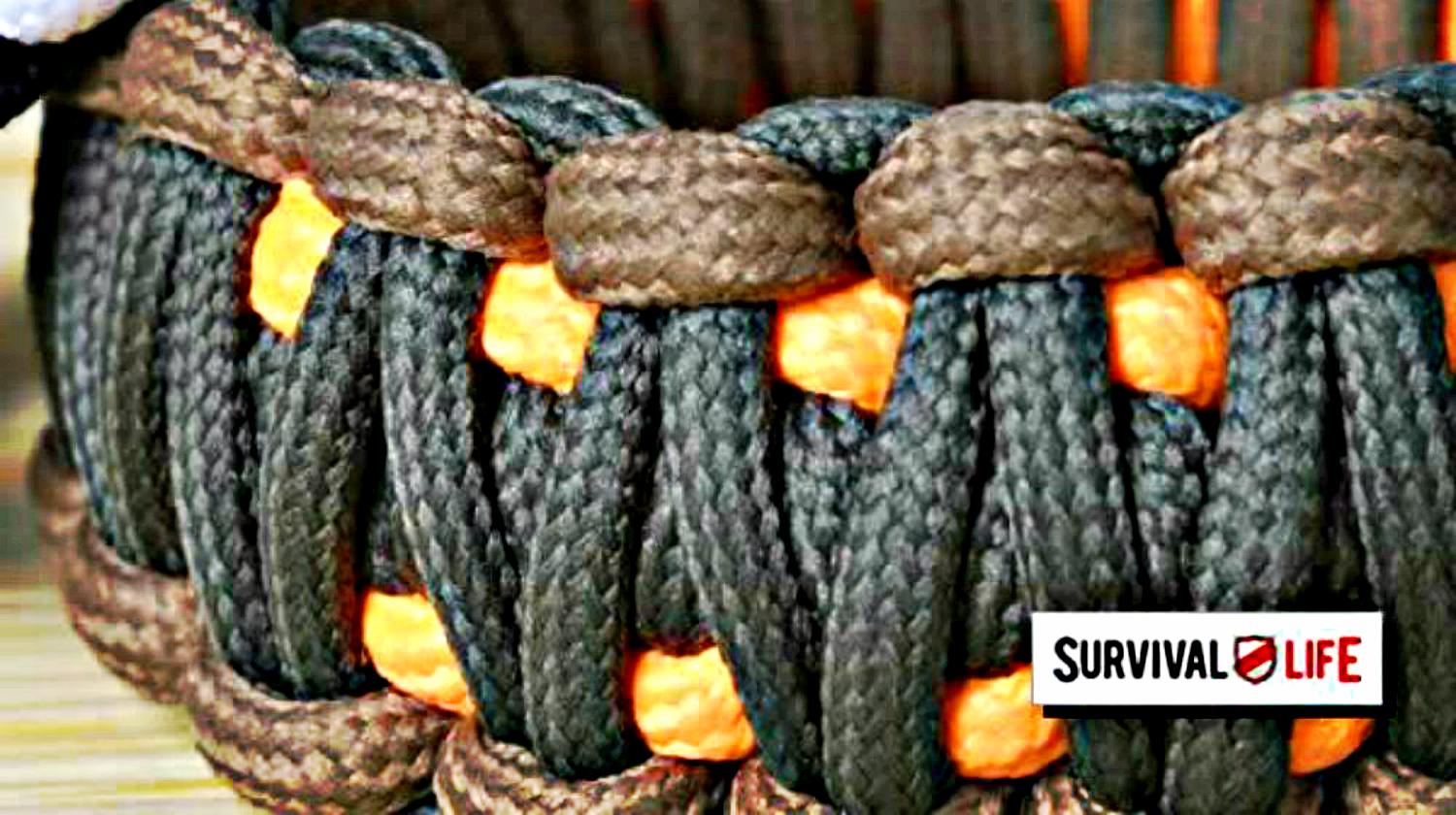




Pingback: Farm Girl Dreams Every Homesteader Has Dreamed | Pioneer Settler
Pingback: Organization Tips: How To Organize Your Weekly Schedule To Make Your Life Easier
Pingback: 101 Smart Home Organization Tips and Tricks You Need to Know
Pingback: Make Your Own DIY Makeup Drawers To Keep Off Clutter Forever
Pingback: 5 Venomous Snakes & Their Look-Alikes | Survival Life
Pingback: 5 Venomous Snakes and Their Look-Alikes - Survive!
Pingback: Wrestling A Crocodile For 25 Minutes [PODCAST] | Best Go Bag